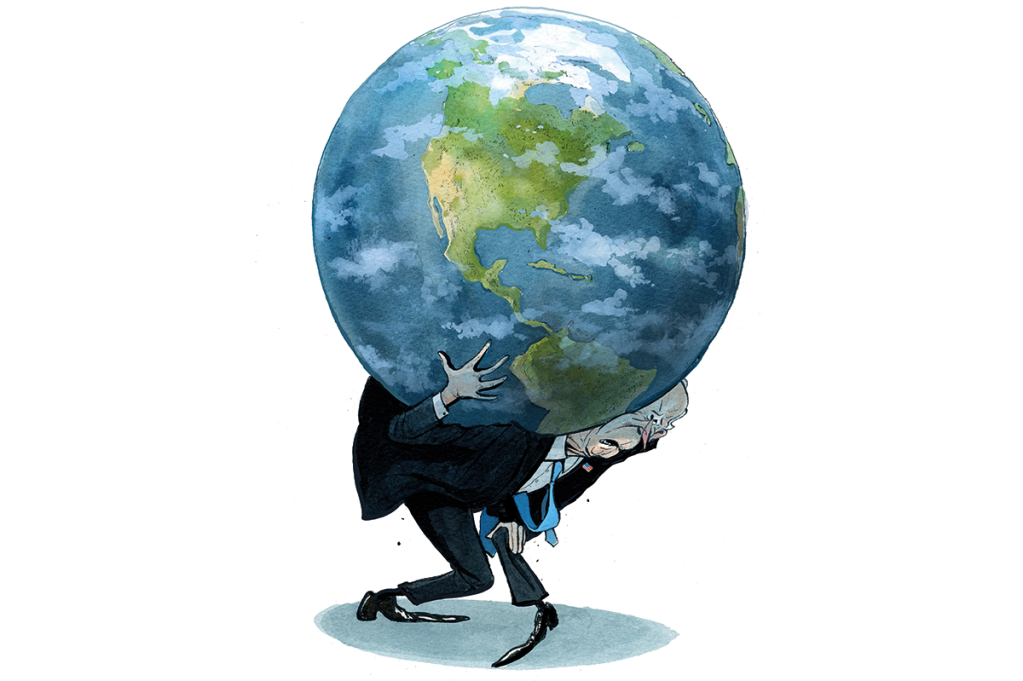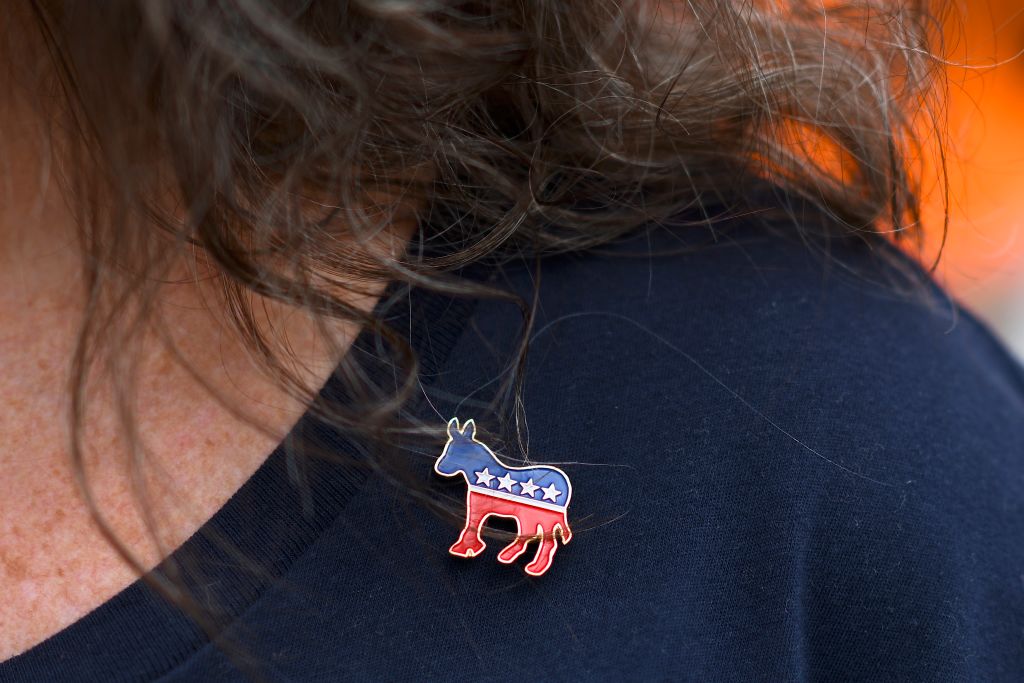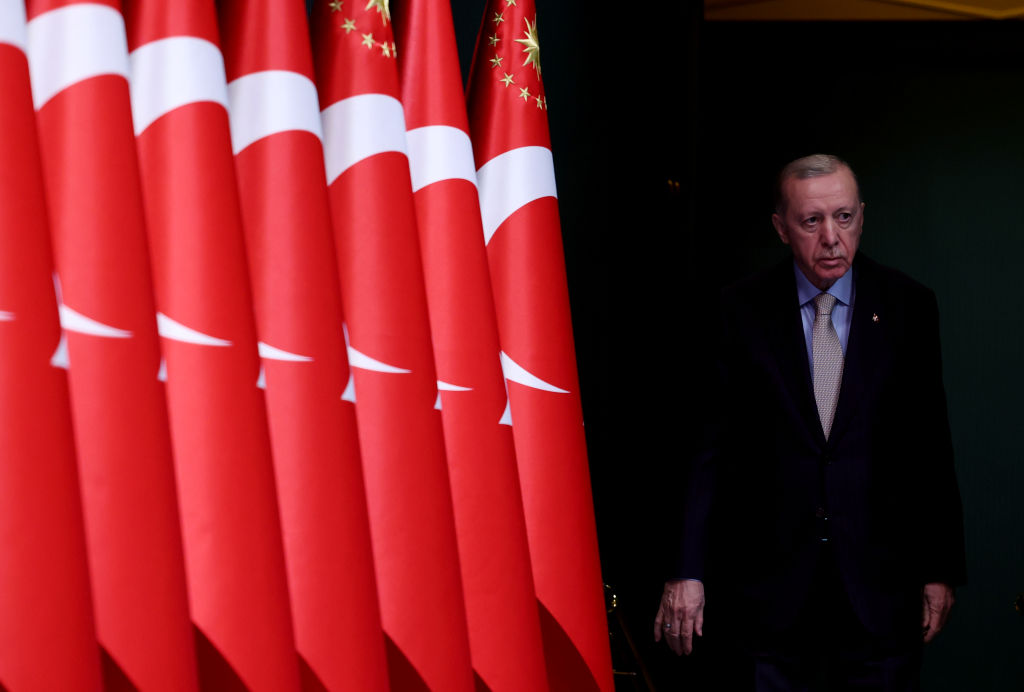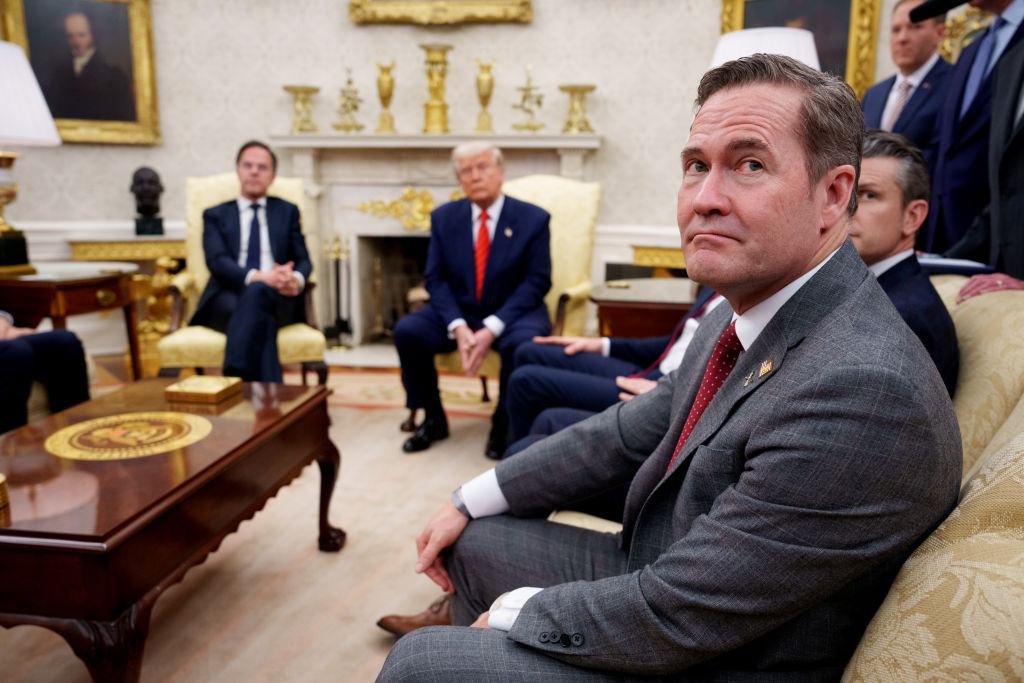Joe Biden talks a lot about restoring America’s standing in the world. But the truth is that if he now has the chance to reshape America’s relationships for a new era, it’s because Donald Trump has already done the awkward stuff. The question is: can Biden and his team swallow their collective pride and build on Trump’s legacy, or will vanity and partisanship send the American Atlas tumbling to his knees?
Trump won the 2016 election by forcing the difficult questions on to the national agenda. In office, he developed an alternative to the spent consensus of the 1990s. Call it vulgar realism, the lowest common denominator of American interest. He named and shamed the self-dealing swamp creatures of Washington DC: corrupt politicians, complacent bureaucrats, thoughtless think-tankers, the bottom-feeding media. He went after the follies and false friends with whom the Washington consensus, and especially the Obama administration, had tied America’s hands and had set it stumbling towards second-rank status: open borders and outsourced factories, the Paris and Iran deals, the freeloaders in Nato and the fantasists at the UN.
Trump’s critics have a point when they complain that he was better at breaking ties than making them. They are right to point out that if the boss had troubled to read the manual before yanking the levers of domestic policy-making, and if the staffing of the White House hadn’t resembled a particularly savage episode of The Apprentice, he might have achieved more with less fuss.
Still, Trump cleared the ground. And he did more than lay the foundations of a new foreign policy. The outlines of the new architecture are already visible in the Pacific, and from the Himalayas to the Atlantic; they would surely have developed further had Trump won in November. As it is, the one-term outsider has arguably the most successful foreign policy record of any president since the end of the Cold War.
He avoided new wars in the Middle East and did his best to end the old ones. He took a tough line on Russia, but not so tough it pushed Russia into an alliance with China. He left the deeply flawed Iran deal and approached the Iranian regime with deterrence, not bribes. And he capitalized on luck and timing to facilitate the reconciliation of the Sunni Arab states and Israel. This breakthrough not only gives the job of confronting Iran to those to whom it matters most; it also contains the seeds of transformation in a Middle East where the oil is running out and Islamists are losing their appeal.
Above all, Trump did the world a favor by standing up to China’s menace. He drew an explicit link between a US foreign policy that refused to take Chinese ambitions seriously and free-trade policies that encouraged the outsourcing of production eastwards.
Trump used America’s purchasing habit as leverage against China. In December last year, after two years of tariffs and recriminations, the two countries concluded phase one of a new trade deal. China committed to buy more US exports, increase US companies’ access to its financial services markets and expand its intellectual property law. Phase two was to include tougher issues such as technology transfers, industrial subsidies and data restriction. Deferred at the time, deferred again by the lost year of COVID, phase two may now be deferred permanently by the Biden administration.
‘China is going to eat our lunch? Come on, man,’ Biden said on the campaign trail in Iowa last year. ‘They’re not competition for us.’ For Biden, the last of the Cold Warriors, the arc of history is perpetually bending towards American supremacy, the rest of the world perpetually progressing towards humanity’s last leap: the end state of becoming American.
Trump barely talked about China’s repression of the Uighurs, and he recognized that while the US was still big enough to go it alone, it was no longer strong enough to force everyone else to come along. For Biden, however, America remains the paramount world power. The purpose of foreign policy is not the securing of domestic prosperity, but the export of the American way.
Trump objects to China as an economic and military threat. Biden’s objections are moral. On free trade and outsourcing, as on the Iraq war, he was chronically in favor of it until he was against it. But Xi Jinping, he says, is a ‘thug’ who ‘doesn’t have a democratic bone in his body’. So Biden promises to hold a ‘summit for democracy’, to reinforce norms that no longer exist with states that no longer hold the balance of global power.
Under Biden, behind a screen of right-on rhetoric, America will step back from the confrontational policies that Trump’s National Security Strategy of 2018 called ‘strategic competition’. In a paper published in September last year, Jake Sullivan, Biden’s pick for national security adviser, and his co-author, the Obama-era diplomat Kurt M. Campbell, argued that the US should seek a ‘steady state of clear-eyed coexistence’ with China through ‘competition and cooperation’. A united democratic front under American leadership, Sullivan and Campbell believe, will force China to ‘either curb its free-riding and start complying with trade rules, or accept less favorable terms from more than half of the global economy’. But not so unfavorable as to ‘Balkanize’ the lucrative ‘flows of knowledge and talent’ in ‘the global technology ecosystem’.
The unipolar world is gone. Trump’s policies are only one of the accelerants that hastened its departure. And the global technology system is already splitting into the lines of a new cold war: Google and Facebook vs Baidu and Weibo. In November, 15 Asian and Pacific countries signed a massive trade deal, the Regional Comprehensive Economic Partnership, which binds American allies like Japan, South Korea, Australia, New Zealand, Singapore and the Philippines into a low-tariff trade zone with China. This will speed up the concentration of Asian supply chains within the Pacific — and reduce America’s influence over the Pacific democracies.
The Europeans are on board with Biden’s cant about democracy. They correctly understand it as an effort to revive the liberal internationalist order on America’s dime. Nostalgic and cynical, they want the American Atlas to do the heavy lifting. But Biden should not expect much in return.
Germany, the EU’s largest economy, is actively soliciting business from China, pursuing its habitual energy diplomacy with Russia and deepening its relationship with Turkey. Unlike France and, after coercion, Britain, Germany refuses to rule out buying 5G from Huawei. In late November, while Ursula von der Leyen, the President of the European Commission, was flattering Joe Biden as a ‘committed transatlanticist’, Angela Merkel was promising Xi that she would ‘step up efforts’ to conclude negotiations for an EU-China investment deal by the end of the year. Merkel also remains committed to the Nord Stream 2 gas pipeline from Russia. A bipartisan consensus in the US Congress has ruled that this will damage Europe’s energy independence.
American influence in Europe is further reduced by Brexit and Emmanuel Macron’s neo-Gaullist ‘France First’ foreign policy. Before Brexit, Britain was a reliably pro-American voice in Europe. That made Britain an asset to the US, but an obstacle to the revival of Europe’s political independence. That is why de Gaulle said ‘Non’ to Britain joining the Common Market in 1963 and 1967. It is also why Macron is pushing for a hard line in the Brexit negotiations: to finally dislodge American influence from the EU.
If Biden cannot revert to America’s old alliances in Europe and Asia, and if, as he seems to intend, America will chase after the fool’s errand of bringing back the Iran deal, what can he do? He can play to the domestic gallery. He can nominate a recently retired general, Lloyd Austin III, as the first black defense secretary: a pleasing symbol which deflects questions about the role of his incoming secretary of state, the very white Antony Blinken, in public-private ‘consulting’ for Pentagon contracts. He can announce the formation of the first all-female press team, an innovation which won’t exactly force China to drop its claim to the Spratly Islands. He can promise labor unions and environmental lobbyists will be ‘at the table’ in future trade negotiations with Beijing. Good luck with that.
Jake Sullivan, Biden’s choice for national security adviser, says he has been told to ‘reimagine national security’ to include ‘the pandemic, the economic crisis, the climate crisis, technological disruptions, threats to democracy, racial injustice and inequality in all forms’. America ‘cannot be a strong and effective actor in the world if we are not a strong and just society and an inclusive economy and a vibrant democracy at home’. A successful foreign policy, Sullivan reckons, means investing in ‘inclusive’ economic growth (a euphemism for race-based subsidies) and ‘overcoming the scourge of systemic racism after 400 years’. This represents the total defeat of foreign-policy realism — the reality of the world outside America, even — by arrant wokery.
[special_offer]
The virtue Sullivan intends to signal means nothing to China, other than confirming its impression of US decadence. It means less and less to America’s allies, other than suggesting America will be even more unreliable in future, as it now has two foreign policies, each subject to the moods of the party in power, and each devoted primarily to annulling the other’s achievements. It does, however, mean a lot to that unlikely domestic alliance: the foreign policy blob in Washington and the Democrats’ activist base.
The Democratic elites have learned nothing and forgotten everything. They have substituted the failed exceptionalism of the 1990s and the War on Terror — America as the warrior of democracy and the world as its battlefield — with a more deluded exceptionalism: the world as a blank canvas for the projection of a campus drama of racial guilt-tripping and redistributive taxation.
Instead of building on Trump’s achievements, the Biden administration is promising to erase every trace of the orange infamy, regardless of the cost. This is government by buzzword. As foreign policies go, it has as much chance of succeeding as a Black Lives Matter protest in Beijing.
This article was originally published in The Spectator’s UK magazine. Subscribe to the US edition here.

























